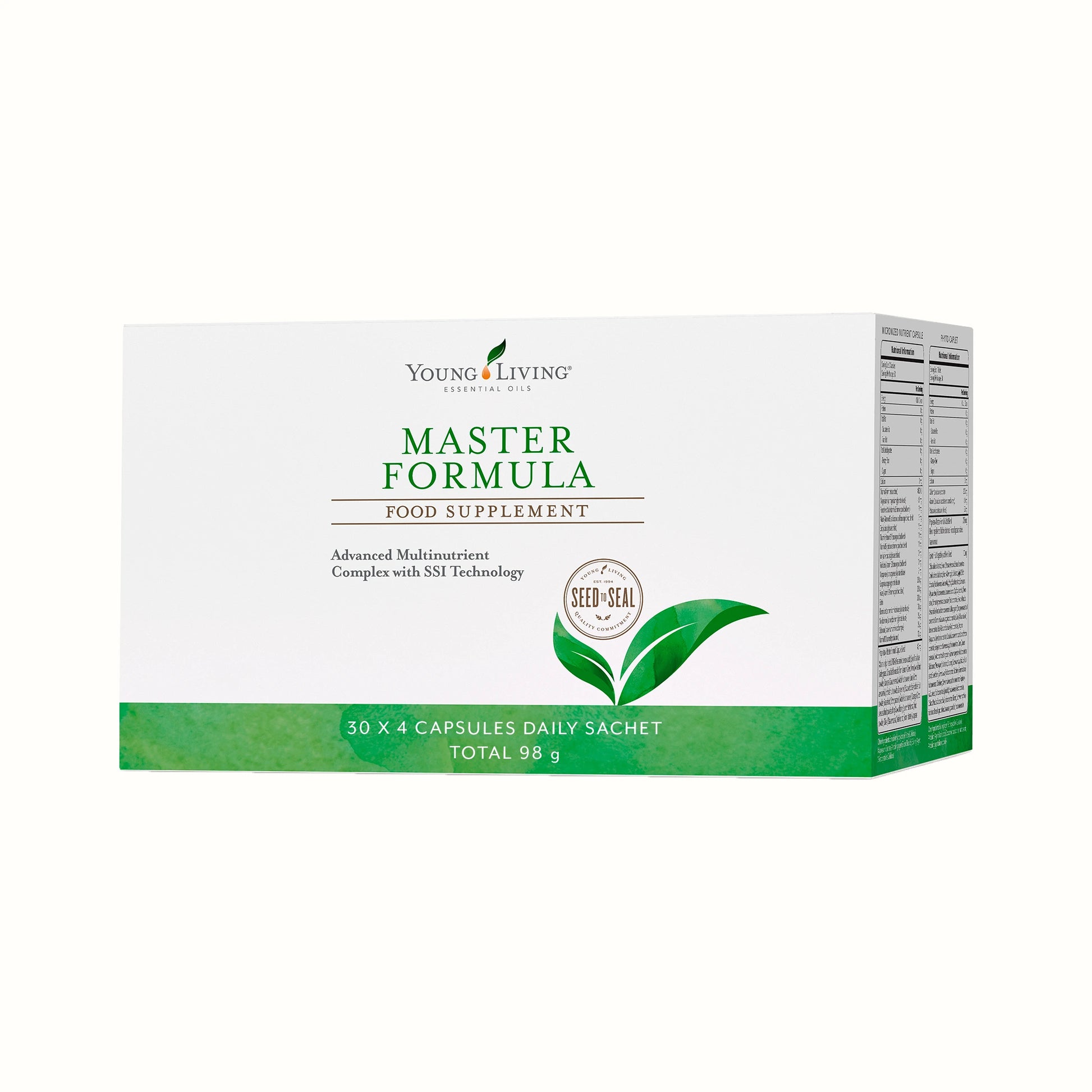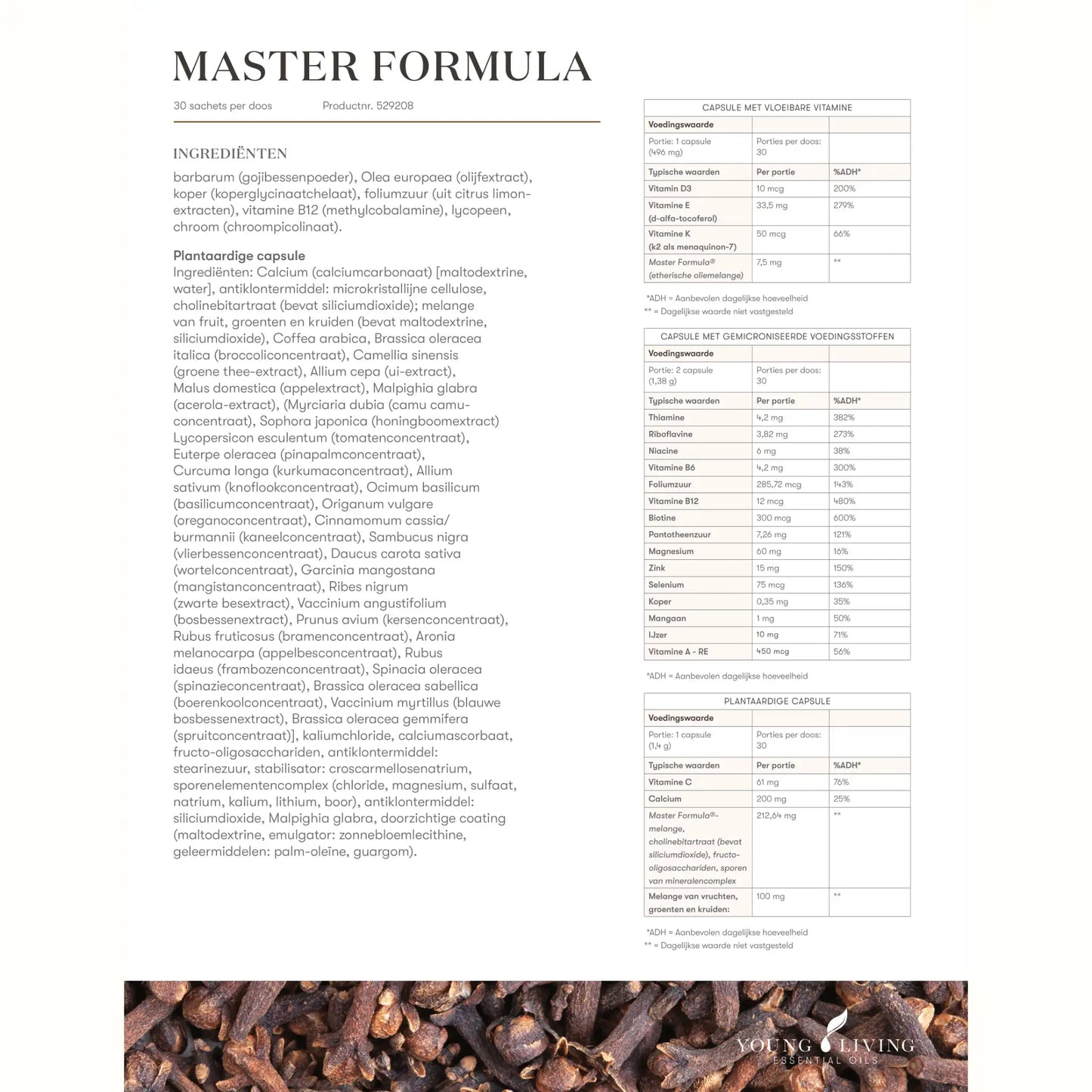
What nutritional deficiencies say about your symptoms – and what you can do about them
I eat healthy, why do I still need supplements?
The Hidden Impact of Nutrient Deficiencies on Chronic Conditions
Introduction
Many women struggle with fatigue, hormonal issues or skin problems without a clear cause. What if these complaints are not 'normal', but result from nutritional deficiencies? This blog shows how nutrition and supplementation play a key role in health and recovery, supported by science.
1. The decline in nutritional value
🟢 Why does our food contain fewer nutrients than before?
- Depletion of agricultural land → Fewer minerals in vegetables and fruit.
- Rapid growth & transportation → Food ripens artificially and loses nutritional value.
- Air pollution & stress → Higher need for antioxidants and minerals.
🔬 Science :
- Geigy Study (1985-2002): Demonstrable decline in minerals and vitamins in food.
- Study X: Soil depletion reduces nutrient density in crops.
2. Pesticides and the impact on nutrient uptake
🟢 How do pesticides affect our vitamin and mineral absorption?
Pesticides and herbicides are used to protect crops from pests, but their impact on our health goes beyond just residues on food.
🔍 Effects on the soil
- Chemical pesticides not only kill harmful insects but also essential soil bacteria and fungi that make minerals available to plants.
- Less microbial activity in the soil means less uptake of magnesium, calcium, zinc and iron by plants.
🔍 Effects on our digestion
- Pesticides can affect our intestinal flora , which plays a crucial role in the absorption of nutrients such as vitamin B12, folic acid and magnesium.
- Glyphosate (the active ingredient in many herbicides) binds to minerals like calcium and magnesium, making it harder for our bodies to absorb them.
🔬 Scientific substantiation:
- Study X : Glyphosate binds to essential minerals and reduces their uptake in both plants and animals.
- Study Y : Pesticide exposure is linked to reduced gut bacterial diversity, which affects vitamin and mineral absorption.
- Study Z : People with higher pesticide levels in their bodies have lower levels of zinc and magnesium in their blood.
🟢 What can you do?
- Eat organic when possible – Organically grown crops contain on average 20-40% more antioxidants and minerals .
- Ferment your food – Fermented products such as kimchi, sauerkraut and kefir support the intestinal flora, which helps with better absorption.
- Rinse and peel fruits and vegetables thoroughly – While this won’t remove all pesticides, it will help reduce residues.
- Support your liver – Foods like coriander, chlorella and turmeric help flush out pesticides and heavy metals.
3. Hidden deficiencies & chronic complaints
🟢 Which complaints correspond to which deficiencies?
💡 Burnout & fatigue → B vitamins, magnesium, omega-3
💡 Hormonal imbalance → Vitamin D, omega-3, zinc
💡 Skin problems → Vitamin A, E, essential fatty acids
💡 Allergies & immune system → Vitamin C, quercetin, zinc
💡 Concentration problems & ADHD → Omega-3, magnesium
💡 PTSD, anxiety & stress → B vitamins, magnesium
🔬 Science :
- Study Y: Magnesium plays a crucial role in stress regulation.
- Study Z: Omega-3 supplementation improves concentration and mood.
4. Why Nutrition Alone Is Not Enough
🟢 Even with a healthy diet, you can still have deficiencies. Why?
- Reduced absorption due to stress & medication
- Lower nutrient content in food
- Higher need due to lifestyle (e.g. exercise, pregnancy, recovery after pregnancy, chronic stress, poor sleep)
🔬 Science :
- Study A: The contraceptive pill decreases vitamin B6, B12 and folic acid.
- Study B: Chronic stress lowers magnesium and zinc levels.
5. How do you recognize a deficiency?
🟢 Common Signs
💡 Magnesium → Muscle cramps, poor sleep, irritability
💡 Vitamin B12 → Fatigue, tingling hands, concentration problems
💡 Zinc → Poorly healing wounds, white spots on nails
💡 Vitamin D → Low resistance, depressive feelings, muscle weakness
🔬 Science :
- Study C: 75% of the population has a subclinical magnesium deficiency.
6. What can you do?
🟢 High nutrient density foods
- Magnesium → Organic nuts, seeds, dark chocolate, spinach
- Omega-3 → Fatty fish, linseed, walnuts
- Zinc → Organic pumpkin seeds, chickpeas, red meat
- Vitamin C → Organic bell peppers, citrus fruits, broccoli
🟢 Smart combinations for better recording
- Iron + vitamin C → Increases absorption (e.g. spinach + lemon)
- Magnesium + B6 → Enhanced effect on relaxation and energy
- Zinc + Copper → Keep in balance to prevent deficiencies
🔬 Science :
- Study D: Magnesium + B6 improves stress resistance and sleep quality.
Conclusion
- Many chronic complaints can be linked to nutritional deficiencies.
- Nutrition alone is often not sufficient due to soil depletion and increased needs.
- Targeted nutritional and supplemental replenishment helps with prevention and recovery.
✨ Do you want to know which deficiencies play a role in you?
💬 At Suzanne Shares we have more than 6 years of experience and we are happy to guide you with a holistic view of your well-being.
Contact us for a measurement and your personal plan!
Read more: What the biomarker scan reveals within minutes. 💛




































